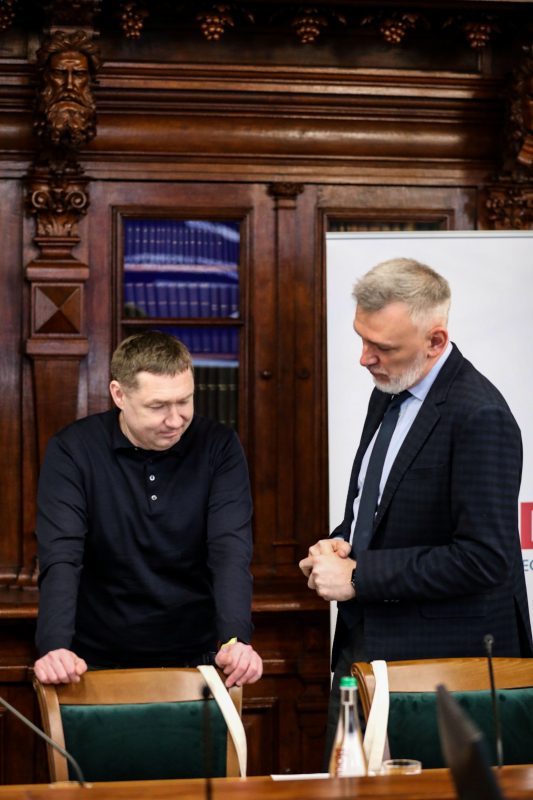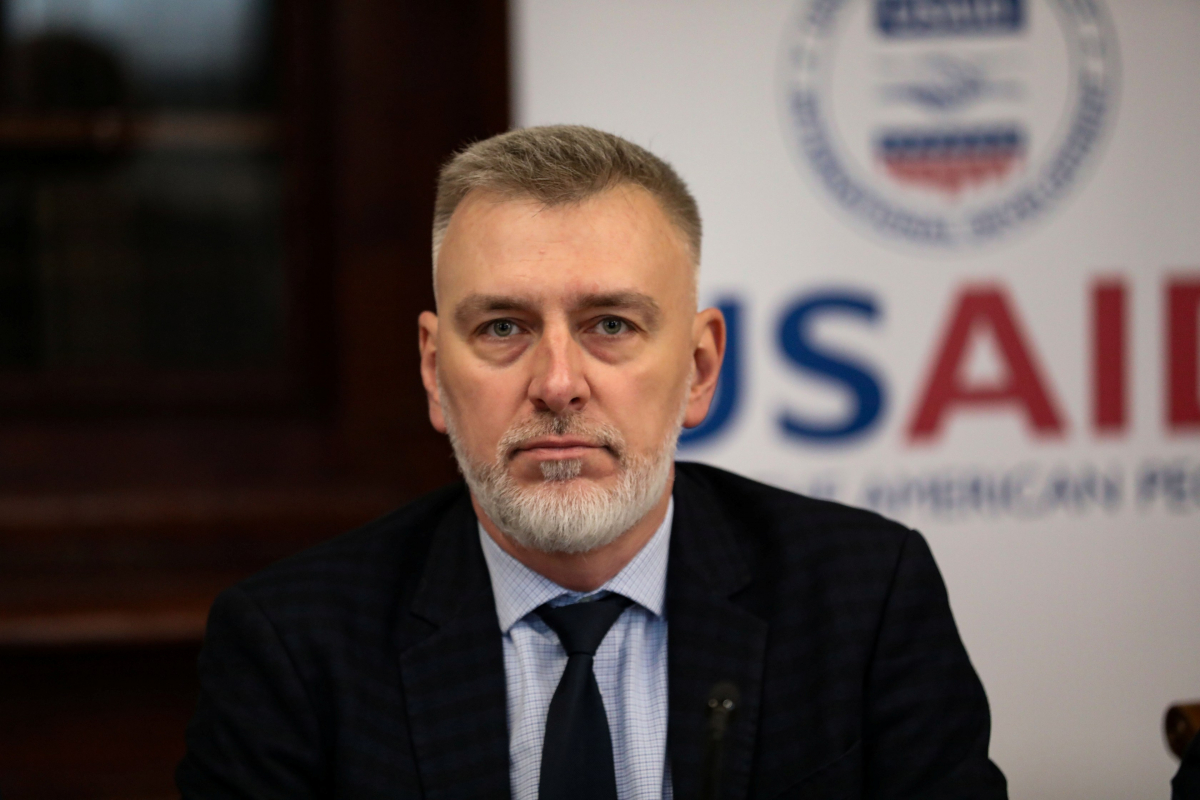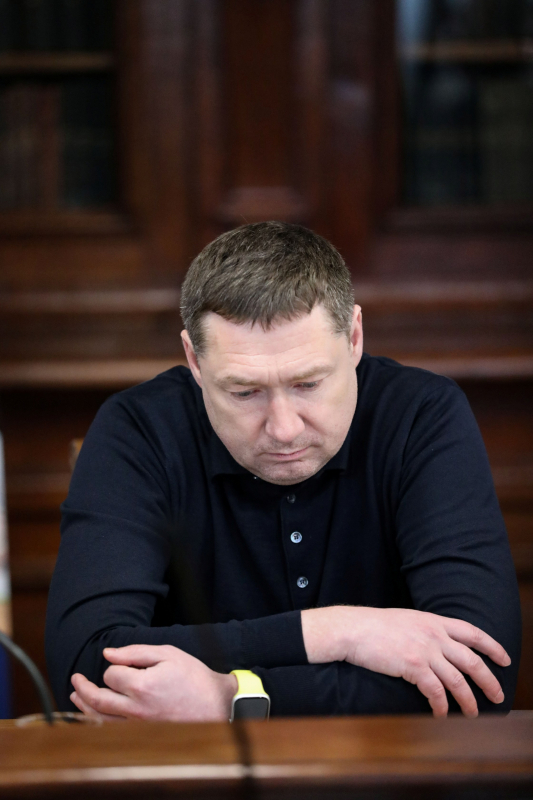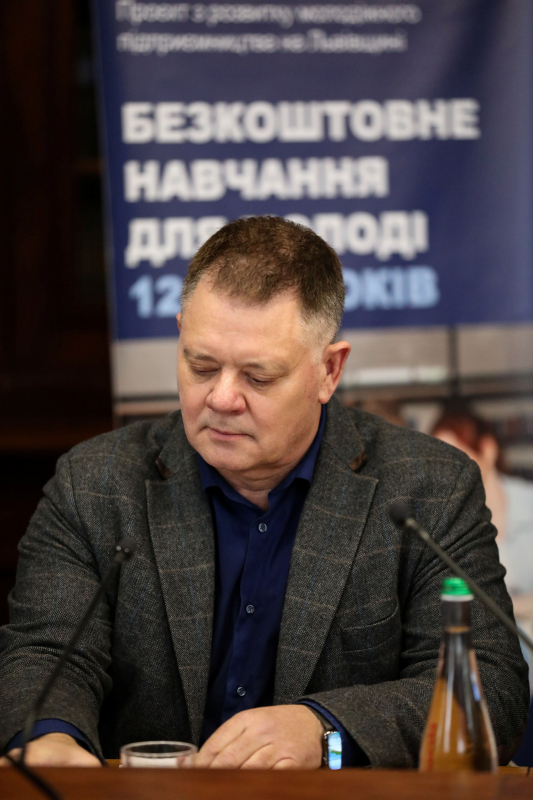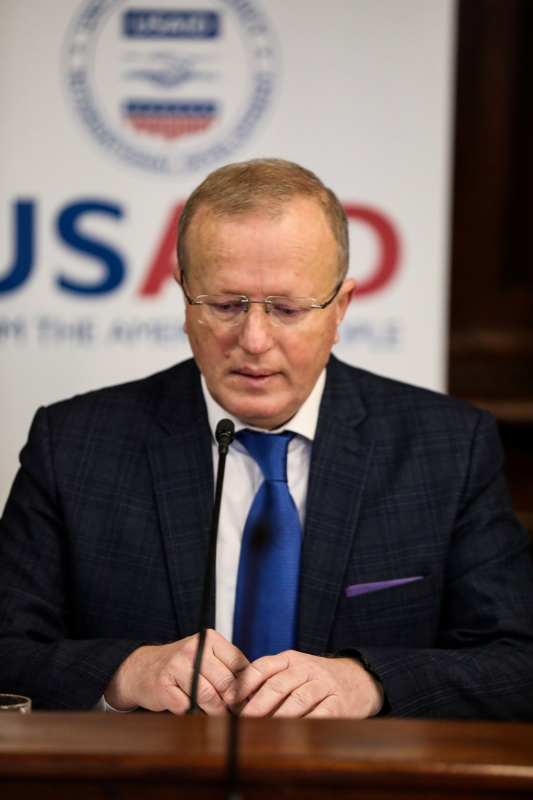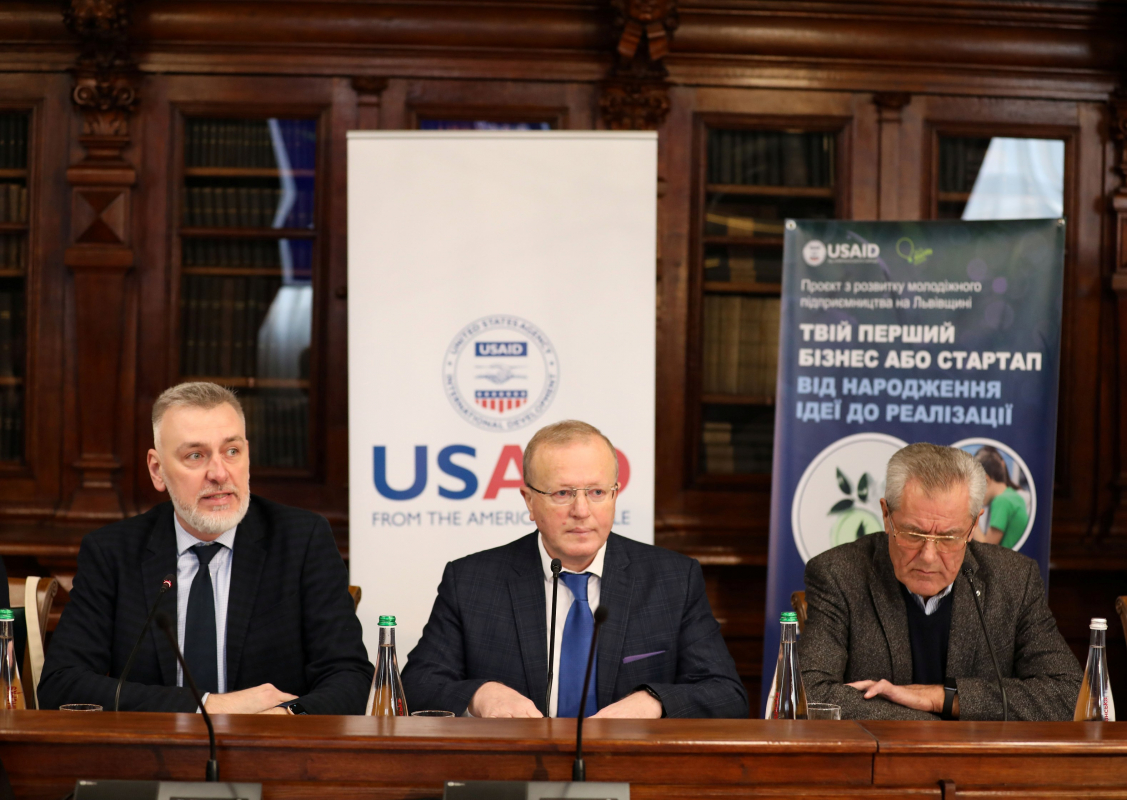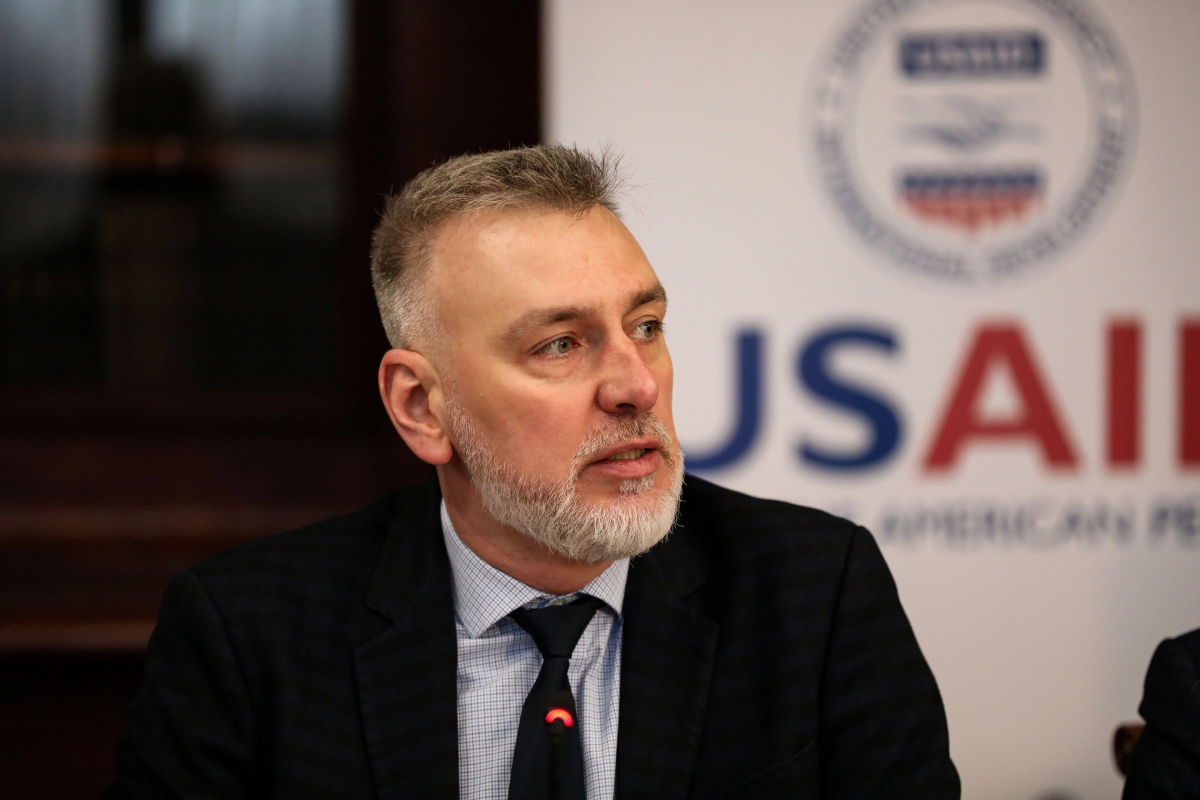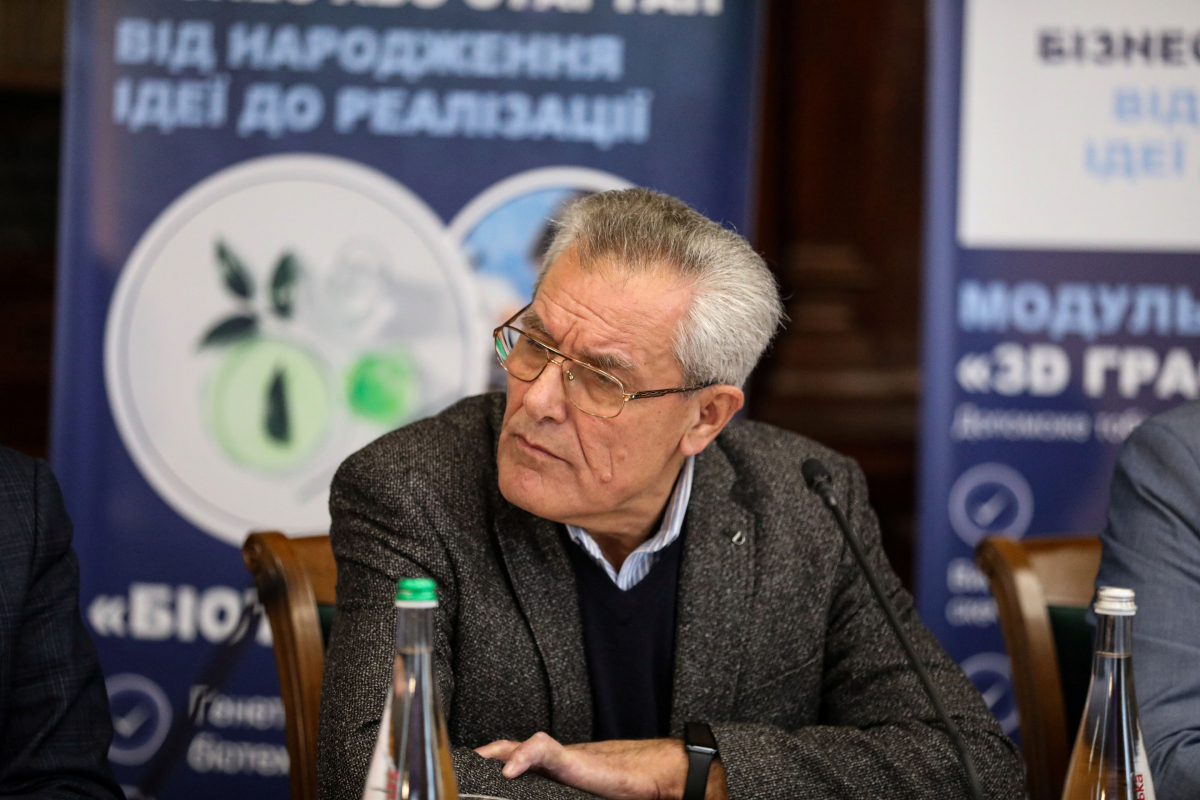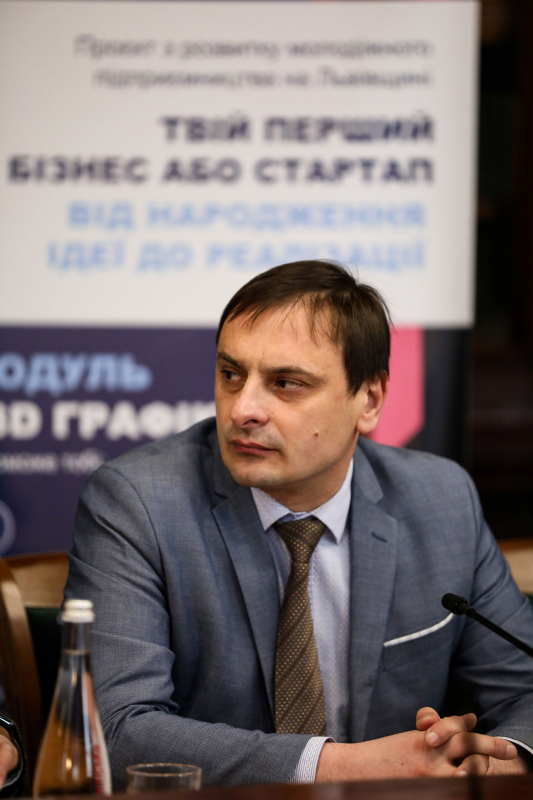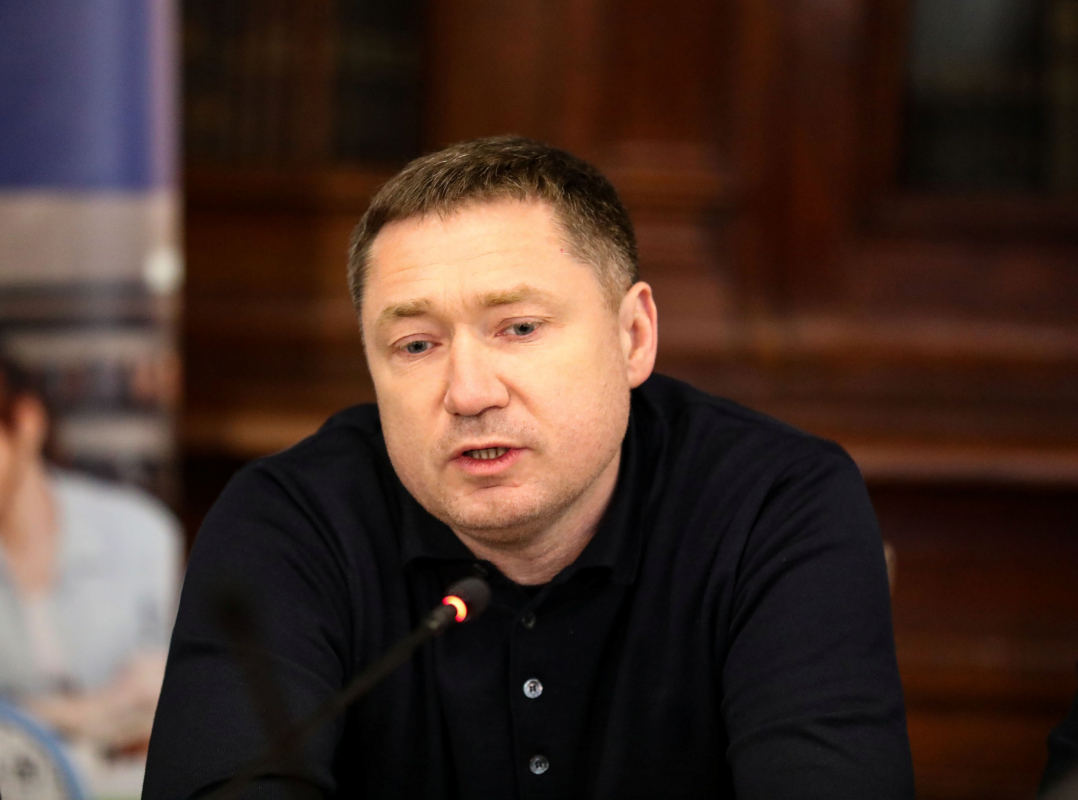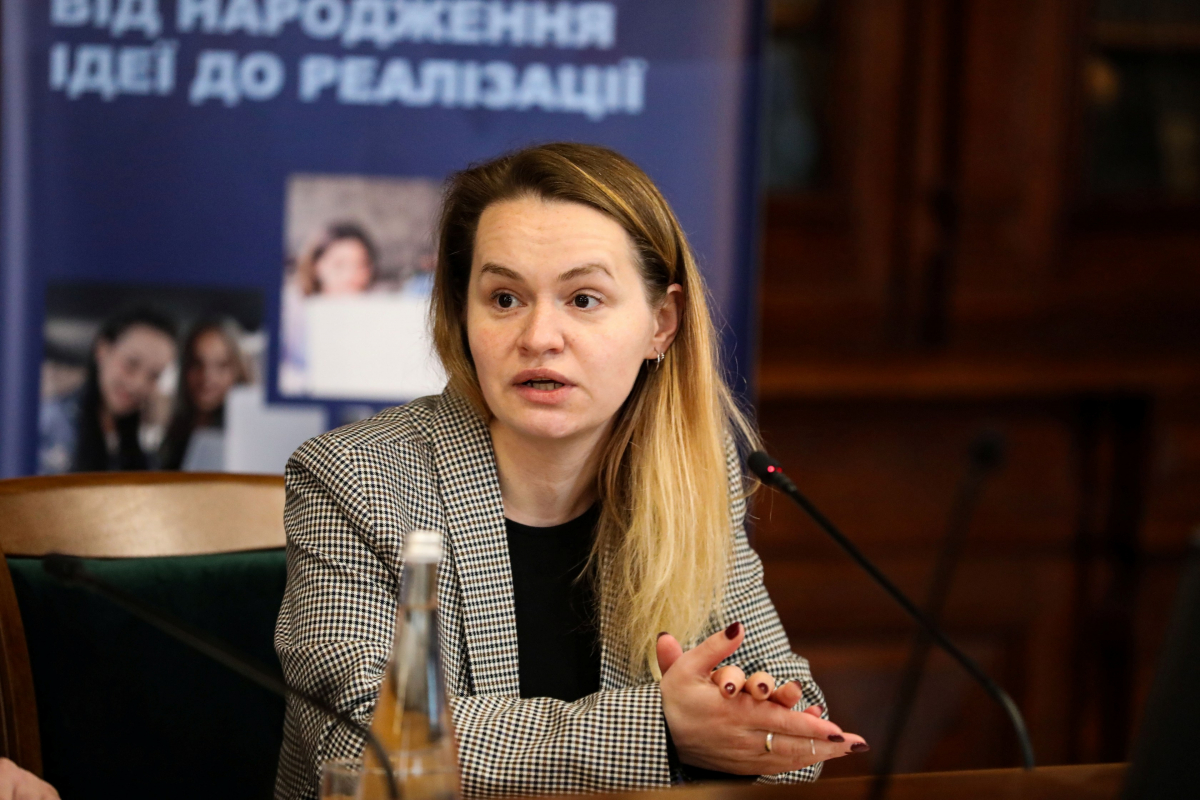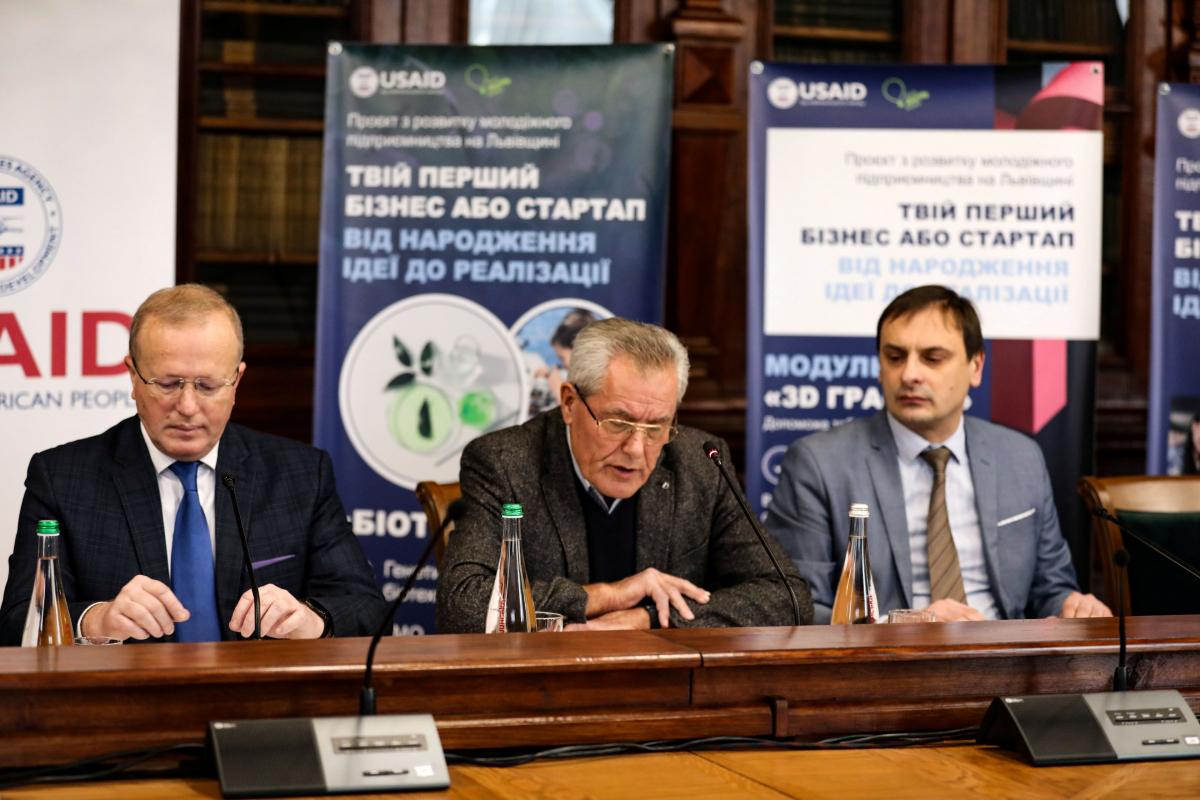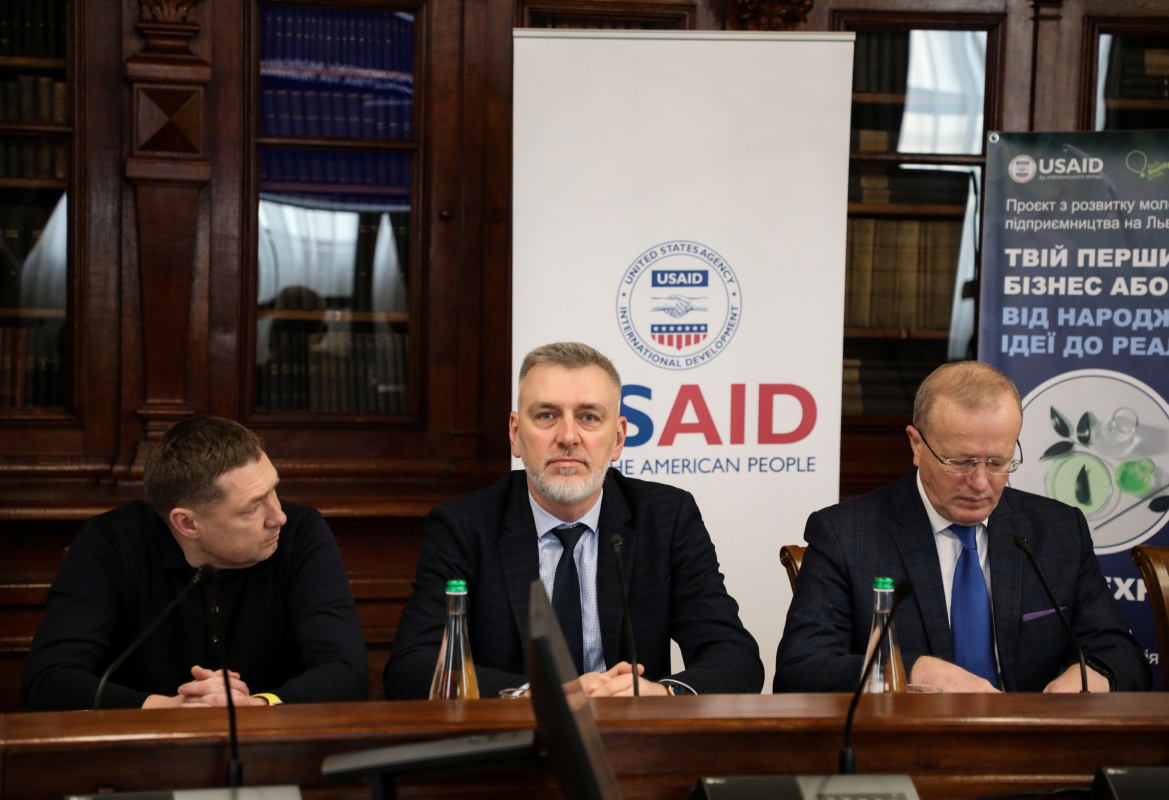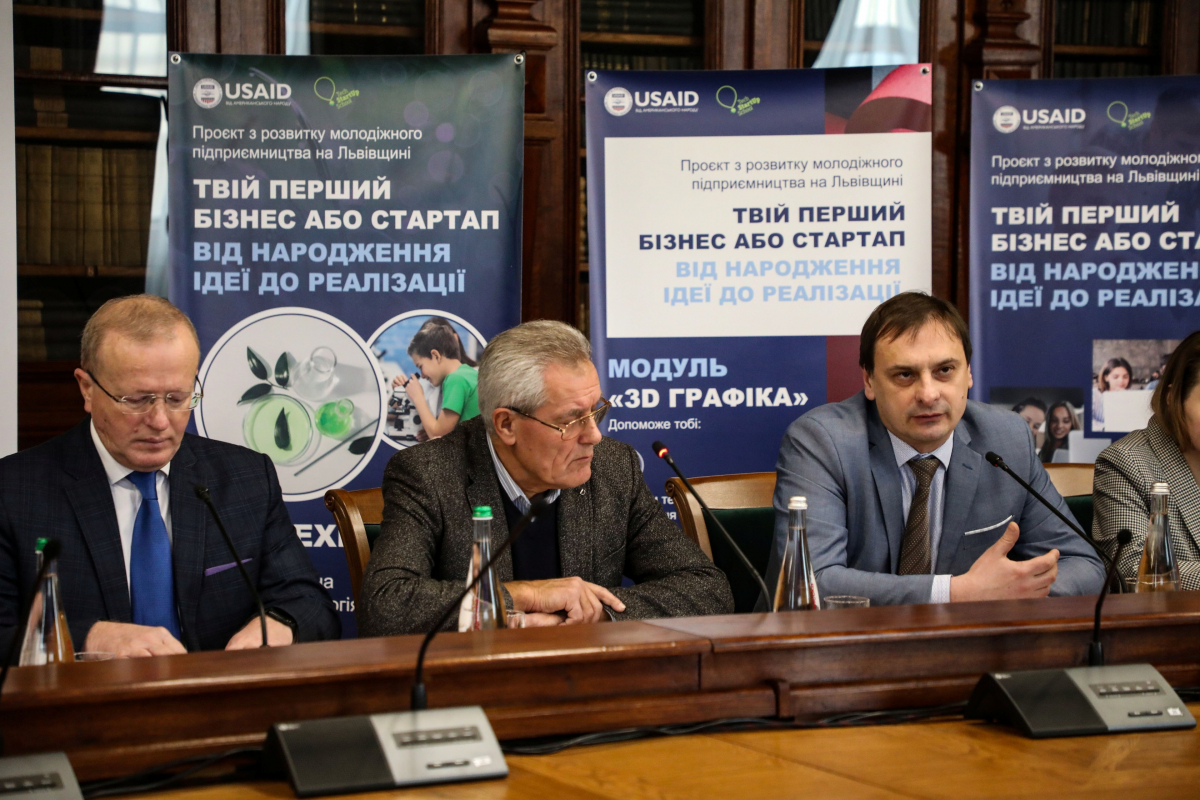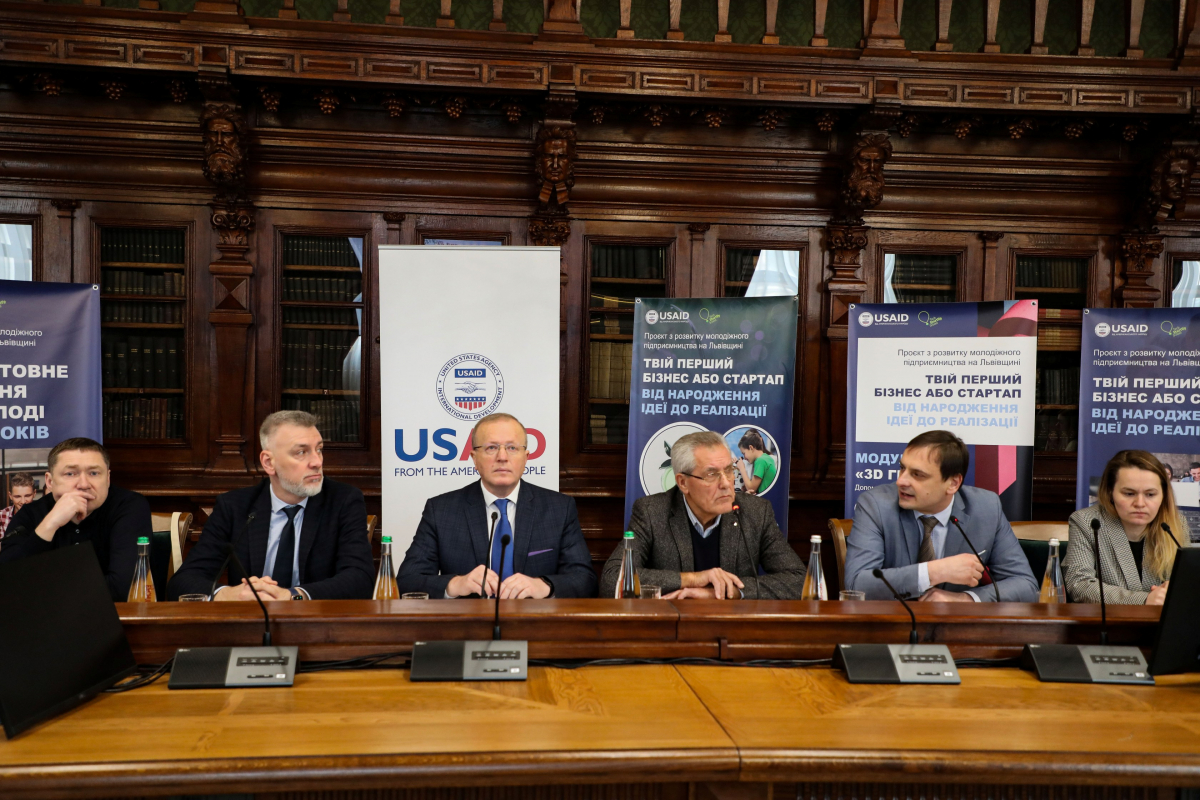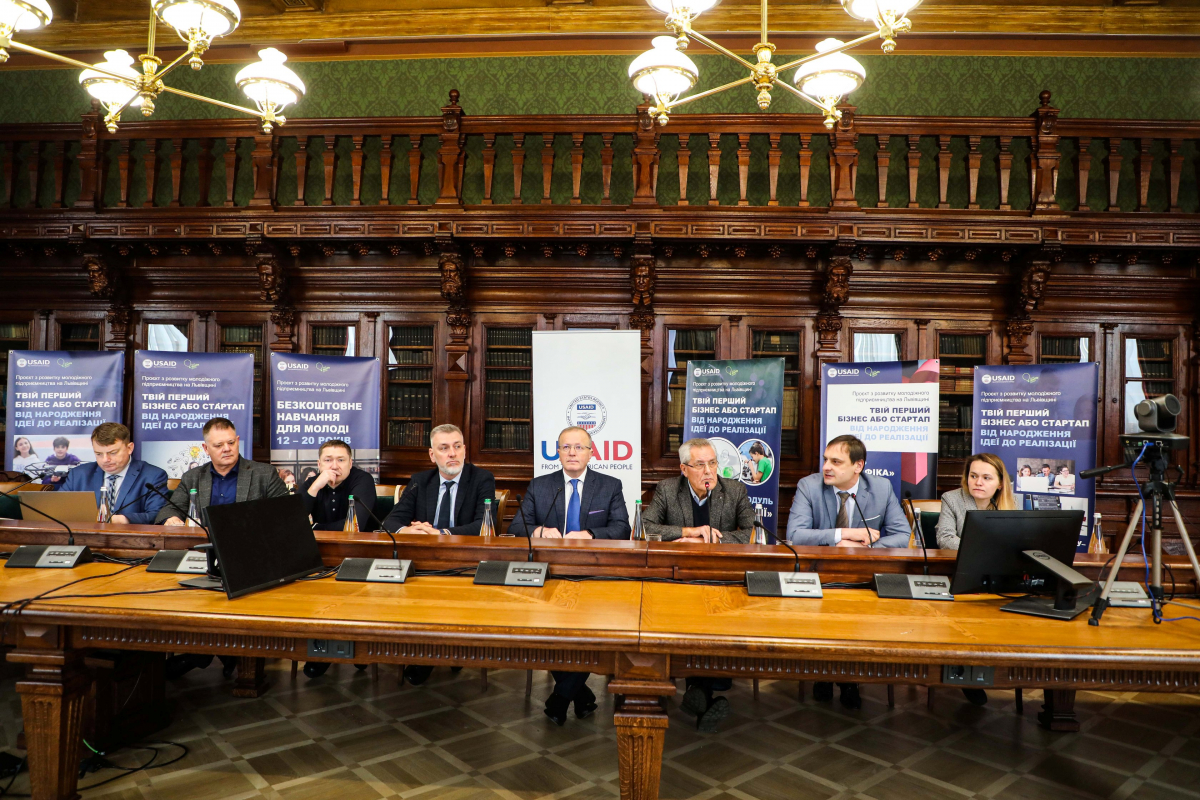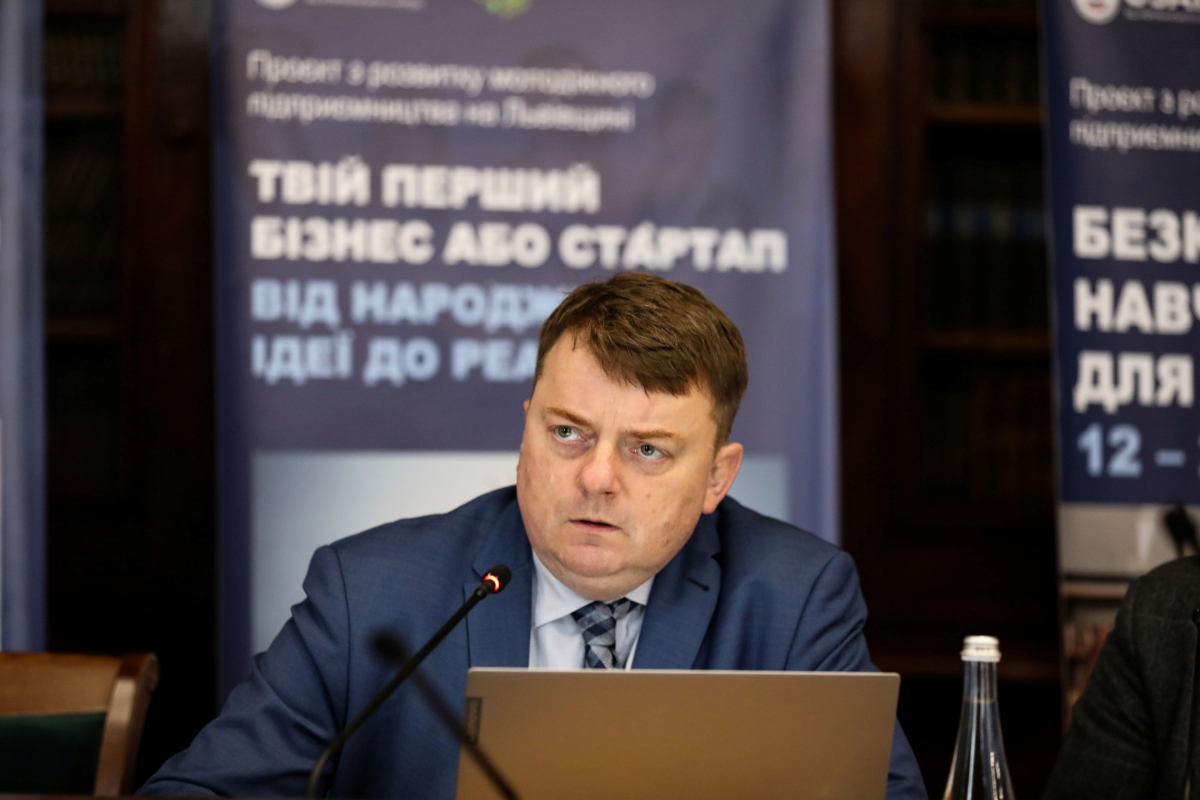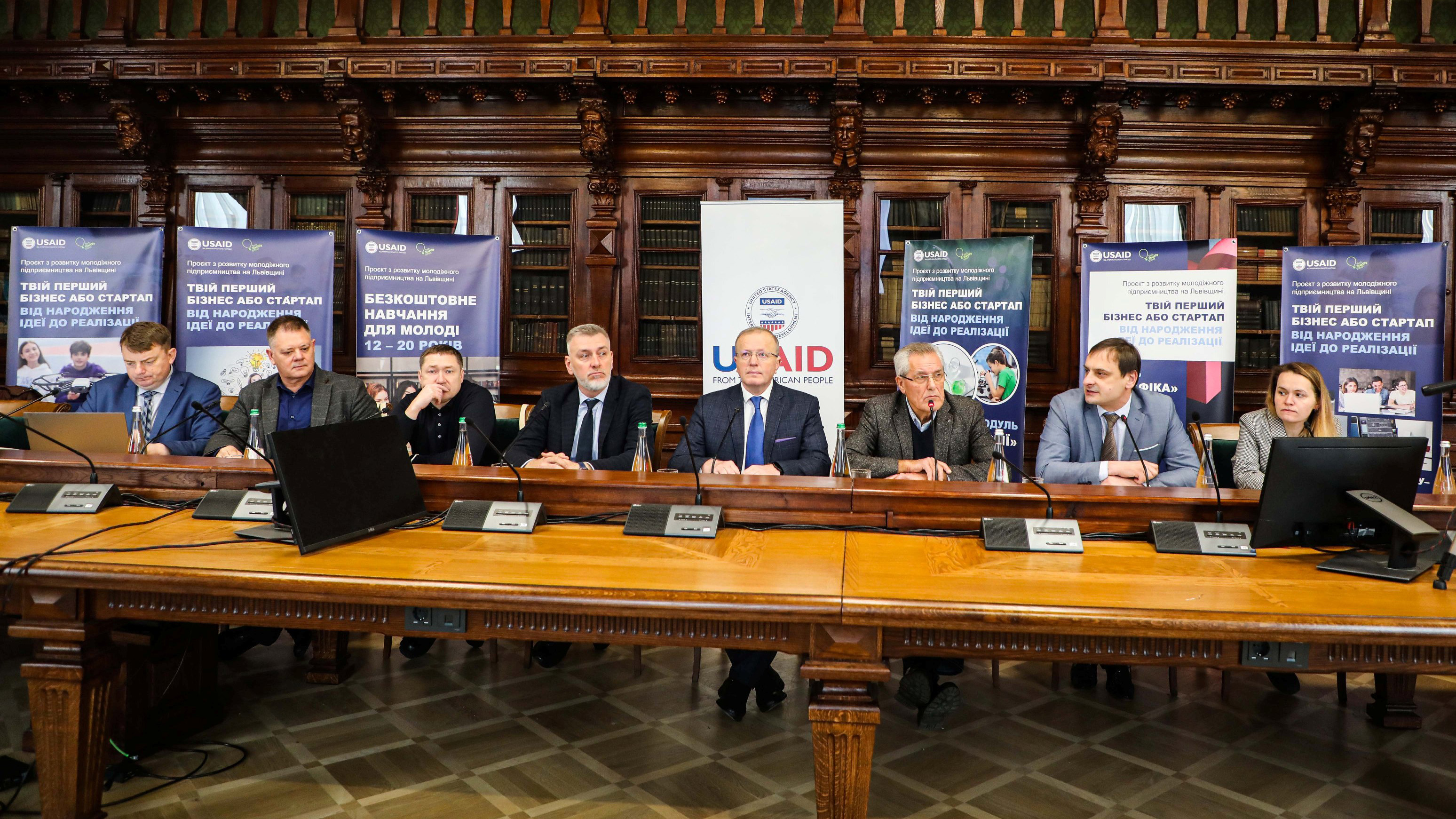Lviv Polytechnic National University presented the educational program that will be implemented within the framework of the project «Supporting the development of youth entrepreneurship among IDPs». Its purpose is to help schoolchildren and students, in particular internally displaced people, to implement their developments and start their own business.
After the official part, a one-day training camp was held for trainers involved in the project. This is its first part, which will include the main module - Creative thinking. In addition, participants can choose one additional module among the following: Introduction to IT, 3-D graphics, Robotics, Operation of drones, and Biotechnologies.
― This program will help ensure that forcibly displaced persons are not a burden on the service delivery system, but rather a human resource that produce new ideas. The project will help young people to form and develop their technical skills, to communicate with potential investors in order to develop and implement their successful innovative start-up projects, said at the meeting Marat Kyurchevsky, Project Management Specialist, USAID.
The training program includes online simulators and thematic workshops.
The second part of the project involves Startup Batiary competition, where each participant will present their own ideas. And the most interesting of them will be implemented with the support of mentors and project partners.
Young people will be taught how to organize an innovative business, manage projects, and create a startup company. Particular attention will be paid to project presentations. Participants will also have the opportunity to interact with potential investors and start preparations for the joint implementation of the project. As a result, the participants' ideas appearing in the game format will turn into successful startups.
This project is implemented by the Tech StartUp School in cooperation with the United States Agency for International Development (USAID) and with the support of the USAID HOVERLA Project.
Professor Yurii Bobalo, Rector of Lviv Polytechnic National University, emphasized the importance of implementing such a project, because by involving students in such programs, we develop interest in promising areas among young people, and the acquired knowledge will help them become successful. He also added that the training will be conducted by the best academics of Lviv Polytechnic who have practical experience in these fields.
The training will be held online for 3 months. Students will have access to all study materials and recordings. Each course consists of 8 lectures and 8 practical classes, which will be conducted by 20 experienced specialists.
Nazarii Podolchak, head of Tech StartUp School, said that since the educational program had aroused considerable interest among young people, they decided to extend the applications deadline until January 20. He also emphasized that this project became a powerful impetus for the development of further promising initiatives. Nazarii Podolchak is convinced that in a few years we will have motivated and qualified young people who will be able to study at scientific lyceums. That is, youth will not be left alone with the projects, but will be supported in the future as well. So, the advantages of participating in this project are: mentoring, partnership, and investment.
Christopher Watson, project manager, who is an entrepreneur in the field of technology development and strategic partnership in the USA, founder of Greenfield Investments, Intellectus and Palmetto Parks Holdings, emphasized the importance of such international cooperation. He also noted that since last year they have been investing in Ukrainian humanitarian projects and startups development. This year they support Ukrainian military and social projects as well.
Project manager Staszek Alwazjak, Krakow University of Economics, head of the Center for Research and Development of Social Innovations, the Jesuit University Akademiya Ignatianum in Krakow, shared the practice of working under similar programs in different countries and, in particular, in Poland. We all understand that academic mobility and exchange programs are opportunities to share knowledge and useful experience.
